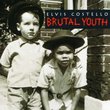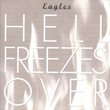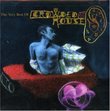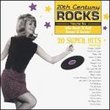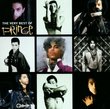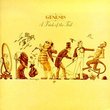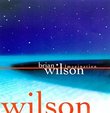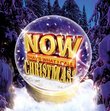| All Artists: The Beach Boys Title: M.I.U. / L.A. Album Members Wishing: 10 Total Copies: 0 Label: Capitol Release Date: 8/15/2000 Album Type: Original recording reissued, Original recording remastered Genres: Pop, Rock, Classic Rock Style: Number of Discs: 1 SwapaCD Credits: 1 UPCs: 724352795024, 0724352795055 |
Search - The Beach Boys :: M.I.U. / L.A. Album
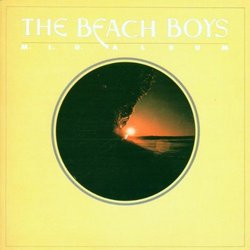 | The Beach Boys M.I.U. / L.A. Album Genres: Pop, Rock, Classic Rock
Want a party game sure to clear the room in record time? Try playing Name the Beach Boys Worst Album; two-plus decades on, 1978's M.I.U. remains a dogged contender. Vocalist Mike Love, perhaps stunned by the massively weir... more » |
Larger Image |
CD DetailsSynopsis
Amazon.com Want a party game sure to clear the room in record time? Try playing Name the Beach Boys Worst Album; two-plus decades on, 1978's M.I.U. remains a dogged contender. Vocalist Mike Love, perhaps stunned by the massively weird, if eminently lovable, originality of the Love You album, somehow cajoled the band to sojourn from Southern California to cut their next effort in that somewhat lesser-known recording Mecca--the Maharishi International University in Fairfield, Iowa. Cascading effortlessly from one sentimental, ill-conceived aural greeting card to the next, the forms and harmonies are familiar, if virtually substance-free, in service of a pop sensibility--Love's--that makes Barry Manilow sound like Rimbaud. Bruce Johnston returned to the fold after a long absence just in time for 1979's L.A. (Light Album)--and a shot at another round of everyone's least favorite party game. The band was right about one thing: this is one light album, a virtually fat-free concoction that shamelessly borrows Bach one moment ("Lady Lynda"), then apes Japanese modalities (Al Jardine's clumsy "Sumahama"), and pimps waning disco fever (a cliché-ridden redux/remix of "Wild Honey's "Here Comes the Night") the next. All it desperately needed was a soul, a commodity the devil had apparently collected in a previous deal. Though the infectious "Good Timin'" was both a highlight and moderate hit, Brian Wilson's creative guidance is sorely missed throughout; judging from these two albums, he may indeed have been crazy ... like a fox. Both albums are newly remastered on a single disc. --Jerry McCulley Similarly Requested CDs
|
CD ReviewsThe Late-seventies albums J. W. James | Acworth, Ga USA | 08/19/2000 (3 out of 5 stars) "Panned by critics, these two albums are usually mentioned whenever the subject of "worst Beach Boys album" comes up. It's really not a surprise with M.I.U., perhaps the group's most bland effort they've ever done. Rough production and tired songs; even the cover of this album is boring. Only a few slight gems which includes the light-hearted "She's Got Rhythm", the fairly dark "My Diane" and Al Jardine's covers of "Come Go With Me" and "Peggy Sue". On the other hand, L.A. ALBUM is surprisingly not as bad as some critics (and even Beach Boys fans) might make it to be. The production is solid and sounds great, and the singing and harmonies in particular are quite good. Perhaps the biggest reason this album is slammed so much is because of the embarrassing 11 minute disco-fied remake of "Here Comes The Night". Not even the nice swirling harmonies can make up for this mistake. However most of the rest of the album fairs pretty well, including the fantastic opener, "Good Timin'". Featuring some wonderful harmonies and a crowd-pleasing melody, "Good Timin'" is one of the Beach Boys finer songs. "Baby Blue", Dennis Wilson's last contribution to the Beach Boys is also one of his best; right up there with "Forever". Also of note is Carl Wilson's "Full Sail", one of the most solid songs he ever wrote, as well as "Angel Come Home", featuring a gruff-voiced Dennis singing lead. It's a shame this album is so unappreciated." M.I.U. outshines L.A. Light Album Brian | Tampa, Florida United States | 09/05/2000 (3 out of 5 stars) "If "M.I.U. Album" is among The Beach Boys' worst albums, it's just a testament to how great the band really was (yes, WAS). "M.I.U." is easy to bash. It followed "The Beach Boys Love You," a fantastic BrianWilsonFest that was an impossible act to follow, and Brian's involvement dropped in "M.I.U." as the authority of his considerably less talented cousin, Mike Love, came to rule the roost in The Beach Boys' camp. However, Brian still is all over this disc, salvaging it from the depths of "15 Big Ones," "Keepin' the Summer Alive" (these two tie for the worst Beach Boys Album Award), "Holland" (take off the hastily assembled "Sail on Sailor" and you've got a real corker), "Carl and the Passions" and "L.A. Light Album." Let's review the tracks on "M.I.U." First is the catchy "She's Got Rhythm," featuring Brian's soaring falsetto and songwriting. An OK cover of "Come Go with Me" follows, but at least the version included on these reissues is snappier and better than that included on the Caribou/CBS reissues that came out 10 years ago. That's right, they used THE WRONG MIXES in not one, but several "M.I.U." songs when the album fist came out on CD. Somebody fell asleep at his or her post. Anyway, the third track, "Hey Little Tomboy," again features great songwriting by Brian - I defy anyone to not enjoy its melody - and vocals between Love and him. Tracks 4 and 5, "Kona Coast" and "Peggy Sue," are the blandness that everybody else keeps talking about. But the disc jolts back to life with "Wontcha Come out Tonight," another Brian-penned song in which a great melody rescues a cheesy hook. Four more great songs follow: "Sweet Sunday," again written by Brian and sung beautifully by Carl Wilson, "Belles of Paris," another sharp Brian tune, "Pitter Patter," a strong song with music from Brian and Al Jardine, and the beautiful, Brian-written "My Diane," sung with tremendous emotion by Dennis. "Match Point of Our Love," yet another Brian tune, follows, and it would be listenable if not for Mike's horrible lyrics, drawing parallels between a tennis match and a relationship. "Winds of Change" is a decent end to the album, though no Beach Boy had anything to do with its writing. Add 'em up and you've got some great songwriting from our hero, Mr. Wilson, on "M.I.U. Album." The low point is the lyrics. "Hey Little Tomboy" is lecherous enough, but its original version, in which an excited-sounding Brian implores a girl to "shave your legs for the first time," can induce nightmares, nausea and pancreatic illness. And nobody denies that "My Diane" is about Brian's relationship with his wife's sister, whom he was quite fond of and apparently sometimes wished he'd married instead of Marilyn. However, at least Dennis sings the lead, and it's no more disturbing than "The Night Was So Young," a great "Love You" track in which Brian sings about a female companion sneaking up to his window at night. Let's just say that song wasn't fiction."L.A. Light Album" finds The Beach Boys at their worst: recycling old material and throwing together songs that will sell on "The Beach Boys" name alone. "Good Timin' " is a great first track and a rare collaboration between Brian and Carl, but Al's "Lady Lynda" doesn't make any secret about where its melody came from (Bach). Carl's slowies, "Full Sail" and "Goin' South," are just that - slowies - but their intentions can be appreciated. As a Floridian from up North, I can relate to the desire to "go South" for the winter, and if "Full Sail" is about Dennis' boat, The Harmony, the song becomes a bit more sentimental. Dennis' "Angel Come Home" is unspectacular. These are the only tracks not torn off the shelves for hasty preparation in this album. Dennis' decent "Love Surrounds Me" and great "Baby Blue" were intended for his second solo album, the never-completed "Bamboo," and the group persuaded him to part with them because they had no material. The same goes for "Sumahama," a hugely underrated track that many people dislike for the same reason they dislike "Brian's Back": Mike Love wrote the music as well as the lyrics. It was intended for "First Love," a solo album that Mike shopped around in the late '70s while Dennis was scoring solo success. "Here Comes the Night" should have been called "Here Comes the Nightmare" - not so much for the song's lack of artistic merit, but for the reaction it would get. Many people write this lackluster album off for the wrong reasons, citing their dislike for "Here Comes the Night" and "Sumahama." Actually, these are two of the most interesting, different and satisfying tracks on the album. This disco remake of the "Wild Honey" song (which was underproduced and could have sounded a lot better) is about five minutes too long, suggesting that it is indeed little more than filler, but the other several minutes or so are quite entertaining. The album closer, "Shortenin' Bread," is pathetic, and once again was picked up and dusted off from earlier in the decade. A superior, Carl-sung version (Brian sings the "L.A." version) was to have gone on the "Landlocked" album, but what gave the group the idea to remake this song is beyond me. That's the feeling you'll get as L.A. Light Album ends: confusion. Why did the group once again have to raid its pantry in search of album filler? Why switch from the slow, peaceful atmosphere of the first six tracks to the disco thump of "Here Comes the Night"? Why choose Bruce Johnston as producer after he's been out of the band for six years? Try not to let these questions cloud your head, as there is a bigger one left to answer: Why do people hold this album in higher regard than its predecessor, the solid "M.I.U. Album"?" Some magic here -not as bad as some say! A. G. Gladwin | Cape Town, South Africa | 08/21/2000 (4 out of 5 stars) "These albums generally get a bad press as the editorial review testifies. They certainly don't match the standard of "Pet Sounds" or even "Sunflower", but there are some magic moments here. One of the advantages of the "two-fer" format is that you can edit out some of the weaker moments and still have quite a bit of really good music.MIU certainly sees a retreat in Brian's involvement from "Love You!", and can be seen as a re-action to that album's rough edges. Some of it is too slick, smooth and bland, but there are some strong tunes shining through, especially on the second half of the album. "My Diane" is the highlight, but (especially if you discount the lyrics a bit), songs like "Sweet Sunday Kind Of Love" and "Matchpoint of our Love" can captivate with their strong melodies. All of the tunes mentioned were at least co-written by Brian, who is certainly around much more than his brothers.LA does see Brian in retreat, Bruce back in the group and the producer's chair, and Carl and Dennis back as songwriters, as well as singers. Much of LA is acceptable to really good, just programme out "Sumahama" and the failed disco megamix of "Here Comes The Night." It really is Carl and Dennis's show, my favorites being Brian and Carl's "Good Timin'", a real late-era piece of magic, Carl's powerful "Full Sail" and Dennis's "Baby Blue", an emotional song which was one of the last he wrote.All in all, 3 1/2 stars would be about right, but since we aren't allowed 1/2 stars, I'll round up."
|

 Track Listings (22) - Disc #1
Track Listings (22) - Disc #1
